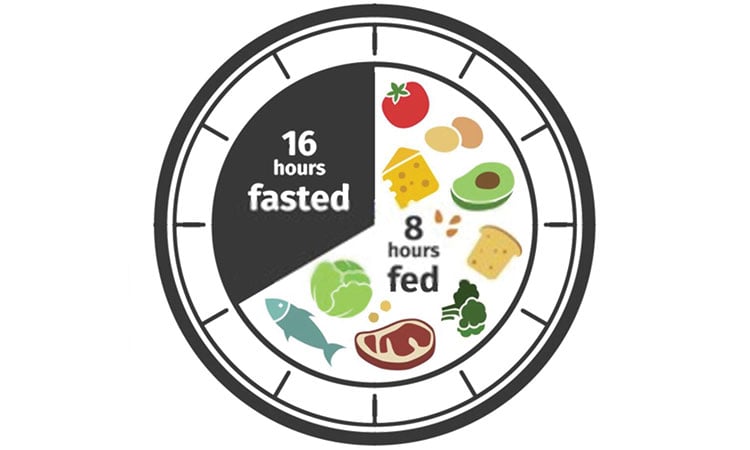Fasting and fertility- what is the relationship? This is one of the common queries raised in many forums by couples who are planning to start a family, yet getting late to conceive.
The journey of pregnancy holds several happy, thrilling, and even challenging moments for the couple. On the other hand, difficulty conceiving takes a toll on the couples. They start to go through stressful, worrisome and exhausting times.
Infertility is becoming more common these days. This is because factors that contribute to infertility such as increased stress level, unhealthy diet, lack of exercise,overweight, health conditions, unhealthy lifestyles are generally increasing.

However, infertility is not a curse anymore. There are effective ways to treat fertility.
Science has developed so much that becoming a mother even in the 50s is achievable.
However, many infertility treatments can be extremely stressful and expensive. Here comes the relevance of fasting. Fasting has shown to improve reproductive health. Many couples have found fasting helps to restore their fertility.
Fasting has been practised for ages by different cultures and therapeutic practices. It is a routine practice of different religions. If, for some, it is on designated days of the week, some stick on to once in a fortnight or once in a month fasting.
For Hindus, 9 days of fasting during Navratris is considered auspicious. During the holy month of Ramadan, Muslims around the world will go for Ramadan fasting, a sort of intermittent fasting, for a whole month. When it comes to the therapeutic angle of fasting, naturopathy use fasting to treat and manage various diseases.
Calculate Due Date With LMP
Ayurveda also asserts that Upavasa (fasting) is one of the steps for many treatments. They basically use fasting to detoxify the body so that the treatment will be effective.
It is found that fasting improves fertility in women and boosts their chances of conception. How do fasting and fertility link? Let’s find out.
Fasting And Effect On Fertility When Trying To Conceive

In one of the studies that concentrated on the effect of fasting on the issues which are linked to women’s health, including her reproductive health, as shown fasting has a positive effect on fertility.
Infertility is mainly caused by endocrine disorders like PCOS, obesity, hypertension, menstrual issues, and other lifestyle diseases. Fasting can keep many of these issues at bay, thereby, helps to restore fertility.
Women with high levels of luteinizing hormone (LH) may experience infertility. This is because the higher level of this hormone can adversely affect the reproductive system. The studies show that the rate of miscarriage was higher in those who had elevated levels of LH.
According to the study that conducted on the effect of fasting and reproductive health:
- Fasting can reduce the symptoms of PCOS.
- Fasting helps to correct the LH level.
- Fasting helps to reduce the stress hormone, which in turn helps to boost fertility.
- Systematic fasting is a healthy way to reduce body weight eventually. Bringing down the bodyweight helps to restore regularity of menstrual cycle and regular period means regular ovulation.
All these results show that fasting can enhance the fertility and chances of conception.
Is fasting safe when trying to conceive?
Fasting is considered as one of the most effective ways to restore fertility both in male and female. Moreover, this detoxification process is free of cost when compared to other expensive infertility treatments.
Even if you are undergoing infertility treatment, fasting with the permission of your fertility specialist can enhance the result of the treatment.
Here are some advantages of fasting that boosts fertility:
- Fasting detoxes your body: Fasting helps to get rid of the toxins and excess hormones that circulate in the body paving the way for infertility. It also helps to bring down the level of stress hormones.
- Fasting rejuvenates the body from cellular level: Fasting helps to reduce inflammation, regenerate organs, enhance metabolism, rebalance blood sugar level, and boost immunity. It also reduces Type 2 diabetes risk. All these help to increase the health of the reproductive system
- Fasting helps to enhance sperm count: Fasting increases sperm count in men. Fasting also improves the level of gonadotropin and testosterone hormones in men, thereby, boosts fertility.
- Fasting helps to enhance IVF results: Fasting helps to remove excess hormones, thereby balancing hormone levels. It also detoxes the liver—all these help to improve the results in couples who are trying to conceive through IVF.
- Fasting improves insulin sensitivity: Insulin resistance is one of the common causes that lead to female infertility, typically among obese women.
Fasting, especially intermittent fasting, improves insulin sensitivity, thereby helping to improve fertility.
Ramadan and trying to conceive

During the holy month of Ramadan, everyday people abstain from food, water, smoking, and sexual activity from sunrise to sunset. There are studies which have suggested that Ramadan Fasting helps to improve the fertility of both man and women.
Leading a healthy lifestyle is important before proceeding with fertility treatments. During the holy month of Ramadan, besides the intermittent fast, people abstain from unhealthy habits like smoking, alcohol consumption, etc. This, coupled with intermittent fasting, enhances the overall well-being of the couples.
A Study on the result of IVF was conducted between fasting infertile Muslim women with non-fasting ones. The outcome of the study shows the success rate is high in the fasting group of women.
Also, in the study, the women who fast show significantly low anxiety and depression which is usually associated with the IVF procedure. This is probably due to enhanced spirituality during the Holy month.
One can continue fertility treatments in Ramadan, provided there are no known pre-existing medical conditions that make fasting unsafe. All you have to do is make small changes in the timing of medication and clinic appointments during this period.
Like most things, while fasting suits some people, it may not be appropriate for others. Fasting is not safe for those who are having an acute hormonal imbalance and severe menstrual cycle issues or those who contracted nutritional deficiencies.
Can Fasting Delay Ovulation?
The answer is yes, as per studies. Fasting can delay ovulation. LH and FSH are key hormones that control the ovulation. They are responsible for the production of estrogen and progesterone in women.
HPG (hypothalamic-pituitary-gonadal) axis emits signals for various functions of our body and coordinates them. This includes the production of these key hormones of ovulation.
You might have noticed your ovulation delays in months when you are emotionally stressed out. That is because the hypothalamus and pituitary glands sense you are not physically or emotionally healthy enough to carry out a pregnancy. These glands, thus, send signals to postpone or impede ovulation until the stress period is passed.
The pituitary gland of women can appraise the calorie intake. When the calorie intake falls below a certain level, it sends signals to delay or stop ovulation. Therefore, while fasting, these glands sense your body is in starvation mode.
What they fail to recognize is if it is real starvation or a self-created one (like fasting). However, when the body goes to a starvation mode, the glands hinder ovulation, thereby preventing pregnancy.
What Is Intermittent Fasting (IF)?

Intermittent fasting is a broad name used for restricting the meal hours to a window and abstaining from food for the rest of the time. There are different types of intermittent fasting.
Fasting can be on alternate days, or over a period of time ( like 5:2; following five days of a week a normal diet and two days calorie intake is restricted to 500cal), or daily time specific restriction on feeding.
The theory of this fasting is by abstaining from eating for long enough; the insulin level of your body decline, and your body starts to burn the reserved fat. IF if coupled with a healthy diet which is low in carbohydrates, fats, and sugar gives an excellent result.
Intermittent fasting helps to speed up metabolism, helps with healthy weight management, and improves overall health. It also helps to improve reproductive health in many ways.
Can intermittent fasting delay periods?
While fasting enhances fertility in many instances, intermittent fasting will not have the same effect on all women. Effects of restrictive eating can take a toll on the menstrual cycle.
If a woman fails to gain adequate nutritional or metabolic energy to support a pregnancy, the body will send signals to the brain to delay menstrual cycle. The menstrual cycle is controlled by various inputs (both external and internal) into the brain.
These inputs work through the HPG axis that, in turn, controls the activity of gonadotropin-releasing hormone (GnRH). GnRH is responsible for the release of LH and FSH, the key hormones that control ovulation and menstruation.
When your body goes to starvation mode, it will affect the release of LH and FSH, resulting in delayed periods. However, moderate Intermittent Fasting (16:8) or occasional 24 hours fasting are probably safe and will not bring about delayed periods.
On the other hand, Intermittent Fast that leads to nutrient deficiencies or fasts that result in prolonged low-blood sugar state, can set off distressed warning to the brain and thereby result in delayed periods.
Does fasting affect implantation?
According to a new study conducted in mice, fasting has an effect on implantation. Here is the result of the study:
- The pre-implantation fasting for 48 hours that starts on day 4 or 5 after the intercourse results in a high rate of pregnancy failure.
- On the other hand, fasting for 48 hours on day six post coitum, had only a moderate effect in bringing about pregnancy failure.
- Furthermore, the female mice that were deprived of food on day seven post coitum show a significant reduction in the rate of pregnancy failure.
Therefore, the study points out that Pre-implantation fasting affects the implantation and brings about pregnancy failure when compared to fasting during the post-implantation period.
Intermittent Fasting And Pregnancy

Some studies show that intermittent fasting improves the blood sugar level, reduce the risk of Type 2 diabetes, regulates blood pressure, and cholesterol levels. Despite these facts, intermittent fasting is generally not recommended to women during pregnancy.
Pregnancy is a time to nourish and fuel your body frequently throughout the day. It is not the right time to follow any sort of restricted diet. Moreover, nausea and vomiting, two common accomplices of pregnancy, necessitate eating at regular intervals to maintain optimum blood sugar level.
Fasting also increases the risk of becoming dehydrated, which is a situation one should avoid during pregnancy. That is why Islamic law permits pregnant and breastfeeding women to opt-out of the Ramadan fasting.
Let’s wrap it up
Fertility is complicated. It is an outcome that only happens when many-body systems maintain a balance. If any of the systems fails to maintain this delicate balance, it can pave the way to infertility. Fasting and fertility are interrelated.
Just like fasting is known to boost fertility on a common ground, how you break the fast is also very important to enhance fertility. You must have a well balanced and complete meal while breaking the fasting. It should be loaded with essential nutrition, vitamins and minerals.
Make sure you are properly hydrated when you are on your non-fasting window. Also, make sure you have an adequate daily requirement of protein and fat. Never fast more than 16 hours if you’re trying to get pregnant.
Likewise, if you are planning to fast while undergoing fertility treatments, you should discuss it with your healthcare provider. Women, who over-respond to fertility injections, have some severe underlying health conditions would be advised not to fast during fertility treatment.
